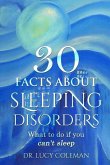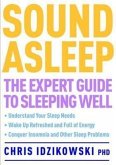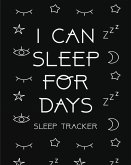Everyone experiences trouble sleeping once in a while. While this may be inconvenient, it's often temporary. When occasional sleepless nights turn into a regular occurrence of many nights in a row with interrupted sleep, you might have a sleeping problem. When you don't get enough sleep for an extended period of time your tiredness impacts every part of your life. Physically, you might notice a decrease in your productivity and daily activities. Emotionally, you may experience relationship problems or a change in your personality. Mentally, a chronic sleep problem can create stress and anxiety. There are three categories of sleep deprivation and insomnia. The first stage, called "initial" insomnia, is when you first realize you're having difficulty achieving a sleep state and occurs when it takes longer than a half an hour to fall asleep. "Middle" insomnia is when you have difficulty staying asleep. Once awakened, you stay awake through the wee hours of the morning. The most sever level of insomnia is "late" or "terminal" insomnia. This is when you wake up early in the morning and stay awake after sleeping less than 6 hours. There are a variety of reasons that you may be having trouble sleeping. If your insomnia is due to a medical condition, your doctor will be able to provide you with suggestions and appropriate medical attention. If it's determined that your sleep problem is due to a medical condition, the condition will be treated with the intention that this will in turn treat the insomnia. On the other hand, if your sleep difficulties are occurring because you are stuck in a cycle of sleepless nights, or your insomnia is due to your inability to reach a state of inner peace needed to achieve sleep, this book is for you. Here you'll find healthy options to try before taking potentially harmful and habit forming prescription sleep aids.
Hinweis: Dieser Artikel kann nur an eine deutsche Lieferadresse ausgeliefert werden.
Hinweis: Dieser Artikel kann nur an eine deutsche Lieferadresse ausgeliefert werden.








